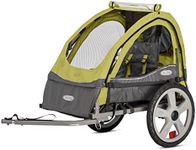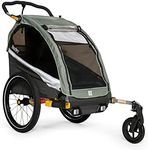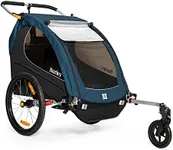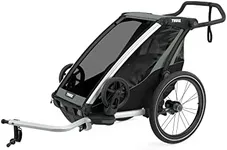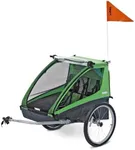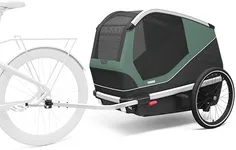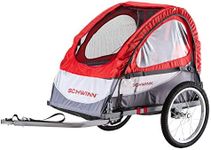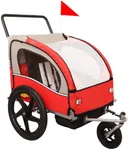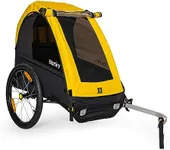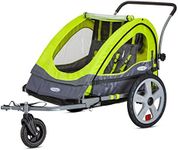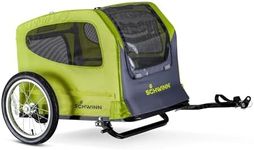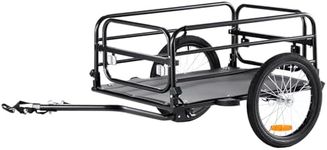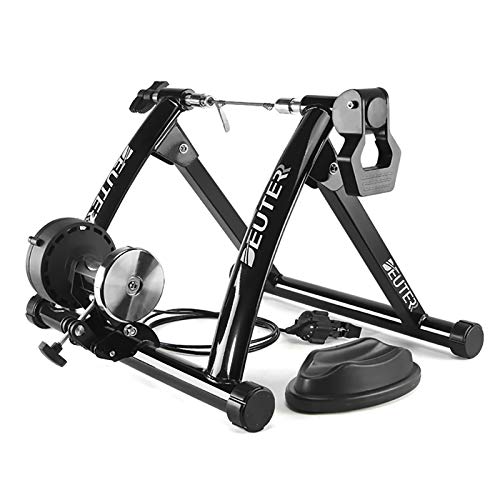Buying Guide for the Best Bicycle Trailers
Choosing the right bicycle trailer can greatly enhance your biking experience, whether you're transporting kids, pets, or cargo. It's important to consider various factors to ensure you select a trailer that meets your specific needs. Here are some key specifications to consider when picking a bicycle trailer and how to navigate them.CapacityCapacity refers to the maximum weight the trailer can carry. This is crucial because overloading a trailer can be dangerous and damage both the trailer and your bike. Trailers typically range from 50 to 100 pounds for kids and pets, and up to 150 pounds for cargo. Choose a capacity based on what you plan to transport. For example, if you have two children, ensure the trailer can handle their combined weight plus any additional items you might carry.
Hitching SystemThe hitching system is how the trailer attaches to your bike. This is important for stability and ease of use. There are different types of hitches, such as axle-mounted and seat post-mounted. Axle-mounted hitches are generally more stable and suitable for heavier loads, while seat post-mounted hitches are easier to attach and detach. Consider how often you'll need to attach and detach the trailer and the type of terrain you'll be riding on.
Wheel SizeWheel size affects the trailer's stability and ease of towing. Larger wheels (20 inches or more) offer better stability and smoother rides, especially on rough terrain. Smaller wheels (16 inches or less) are lighter and more maneuverable but may not handle bumps as well. If you plan to ride on varied terrain, larger wheels are a better choice. For city riding on smooth paths, smaller wheels might suffice.
SuspensionSuspension systems help absorb shocks from bumps and rough terrain, providing a smoother ride for the trailer's contents. This is particularly important if you're transporting children or pets. Trailers with suspension are generally more expensive but offer a more comfortable ride. If you plan to ride on uneven or off-road trails, a trailer with suspension is a good investment. For smooth, paved paths, suspension may be less critical.
Storage and FoldingStorage and folding capabilities determine how easy it is to store and transport the trailer when not in use. Some trailers can be folded flat, making them easier to store in small spaces or transport in a car. If you have limited storage space or plan to travel with the trailer, look for models that fold compactly. Consider how often you'll need to store or transport the trailer and choose one that fits your space and convenience needs.
Weather ProtectionWeather protection includes features like canopies, rain covers, and ventilation. These are important for keeping the trailer's contents dry and comfortable in various weather conditions. If you plan to ride in different weather conditions, look for trailers with good weather protection features. For sunny climates, ventilation and sunshades are important, while rain covers are essential for wet conditions.
Safety FeaturesSafety features such as harnesses, reflectors, and flags are crucial for ensuring the safety of the trailer's occupants. A good harness system will keep children securely in place, while reflectors and flags increase visibility to other road users. Always prioritize trailers with robust safety features, especially if you are transporting children. Consider the environments you'll be riding in and choose a trailer with appropriate safety measures.
